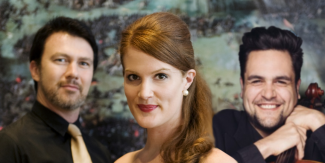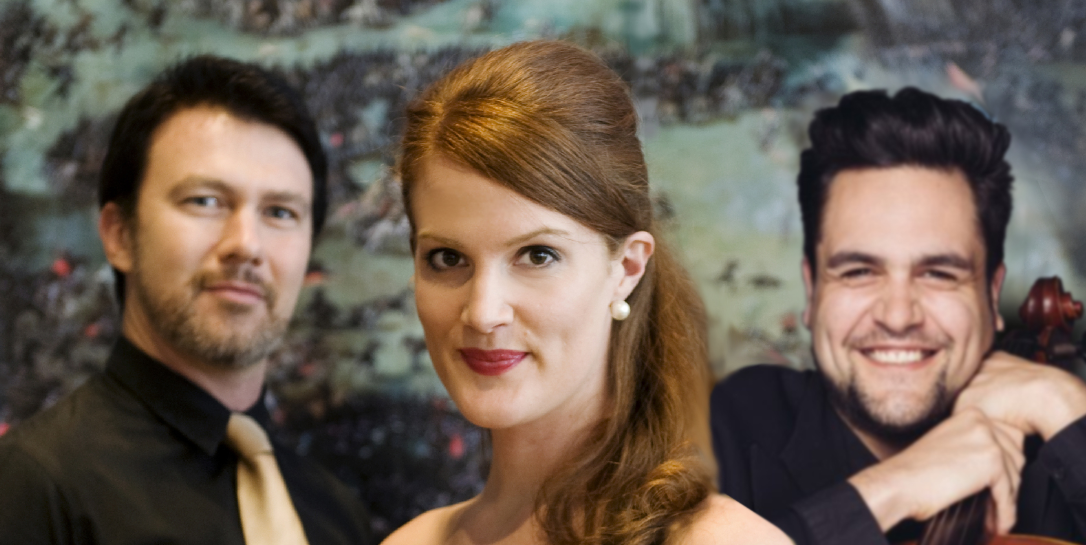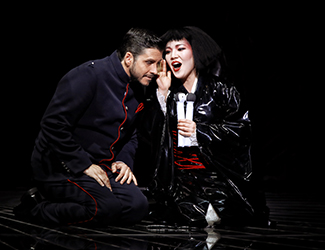Concert Review: Jazz Inspirations/ Streeton Trio

Jazz Inspirations, Streeton Trio
Independent Theatre, North Sydney
26 August, 2018
Written by Paul Bennett
This eclectic and very enjoyable program from the internationally acclaimed Streeton Trio nicely illustrated the broad range of influences composers employ to lend inspiration to their compositions.
Billed as a program exploring the works of composers inspired by the jazz era, those who arrived expecting to hear swing rhythms or complex jazz harmonies were instead welcomed by something completely different – the father of classicism – Joseph Haydn and his Piano Trio in G, “Gypsy”. Haydn was well acquainted with gypsy music and musicians from a young age and the third movement in particular references gypsy themes and rhythms. As Emma Jardine explained in her introduction to the piece, this trio was early in the evolution of the piano trio as a distinct form. The Streeton Trio played with good attention to detail in the frequent piano / violin and piano / cello doubling sections in the first and second movements before delivering an energetic lively final movement very much in keeping with the gypsy influences present.
The program moved to another work influenced by folk themes written by a composer who once wrote “Personally I find jazz most interesting: the rhythms, the way the melodies are handled, the melodies themselves.” Maurice Ravel travelled to New York in 1928 and his later works were clearly influenced by the “who’s who” of jazz he met during that visit. Ravel’s Piano Trio in A Minor is a work from an earlier, more folk influenced period of the composer’s life and was, after a long gestation, delivered a few days after France’s entry into WW1 in September 1914, probably because Ravel was keen to enlist. The trio has 4 movements: Modéré with its rich texture and sonority inspired by Basque folk dance; Pantoum (Assez vif) – a scherzo like movement which musically interprets a verse form where each stanza repeats as its first and third line the second and fourth line of the preceding stanza; Passacaille, based on a slow Baroque dance building to an emotional climax before the last movement, Final (Animé) uses a variant of the first movement theme and reaches a thrilling climax. As Benjamin Kopp the trio’s pianist said in his introduction, Ravel in this work, combined his best thematic material to create a piece which is rightly considered one of the best examples of the piano trio form and the Streeton Trio did not hold back in delivering a wonderfully energetic performance.
After interval the concert changed gears. First up was Space Jump, a 2013 tone poem by Turkish composer Fazil Say based on Felix Baumgartner’s highly publicised and daring free fall parachute jump from the stratosphere in 2012. Say sketches a compelling audio picture of the event starting with the quiet and spare soundscape of the stratosphere, the adrenaline rush of the descent and the confident conclusion accompanying a major achievement. The evolving visual representation was kept front and centre in the Streeton Trio’s performance of this sometimes technically demanding work.
Contemporary Melbourne trained composer Harry Sdraulig introduced his work in person. Joybox, composed in 2017 for Musica Viva is described by the Australian Music Centre as “an energetic and fast-paced exploration of a single thematic idea which is subject to a multitude of transformations and interruptions.” The intensity the Streeton Trio brought to their performance served to keep us focussed on the work and illustrated its multiple transformations.
Ending the program was Café Music – a piece written in 1986 which showed not only jazz inspiration but jazz expression. Paul Schoenfield is a Detroit born pianist and composer who was hired to fill in for a pianist in a trio at a restaurant called Murray’s in Minneapolis. He was so taken by their ability to quickly switch styles that he determined to write a piece who of “high class dinner music that might also (just barely) find its way into a concert hall”. The three movements are a delightful vehicle for the Streeton Trio who clearly enjoyed their work and treated us to plenty of light and shade, highs and lows, different jazz feels and plain old-fashioned instrumental “duelling” in the best traditions of jazz virtuosity!
During this concert the Streeton Trio illustrated why they are described by Musica Viva as “Australia’s most internationally successful trio”. Emma Jardine (violin), Benjamin Kopp (piano) and guest cellist Blair Harris demonstrated fine ensemble playing, technical brilliance, attention to detail but most important a genuine energy and warmth for the music – it was an infectious and inspiring mix!
Paul Bennett for SoundsLikeSydney©
Dr Paul Bennett is a medical musician- part of the long tradition of medical doctors whose passion is music but whose day job is medicine. Paul trained in piano at the Sydney Conservatorium under Margaret Hughes and has since been involved with many choirs and soloists as an accompanist and teacher. His special interest is jazz and he’s the pianist in the Sydney jazz trio “Not The Full List”. Paul has an active interest in the use of film and video production in medical education and he has a qualification from the Australian Film,Television and Radio School.






